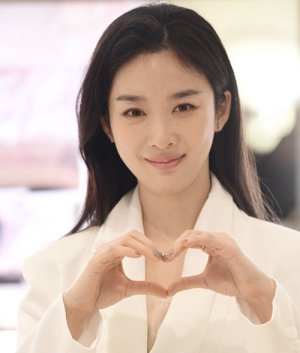White Tower is a metaphorical expression that is named in a way meant to criticize the Japanese medical system. Brace yourselves as this is going to be a really long review.
Before I start I’d like to say that I have always wanted to watch this drama ever since I heard all rave about it since I first started watching Asian dramas. Only, at that time I couldn’t find a way to watch it because back then Internet wasn’t as accessible as now and Asian dramas (especially J dramas) aren’t easily found streaming or even subbed. However, since I’ve decided to practice my Korean language through watching J dramas my first target would be those dramas which I’ve always longed to binge watch but couldn’t. Lucky for me a very good quality of this drama is available with Korean subs (and after long search I found Eng subs as well). The only reason I would be crazy enough to go for a medical, dialogue-rich drama such as White Tower in Korean subs is simply because I really wanted to watch it. “White Tower" was broadcasted in Japan in 2003, and in 2004, it won Japan TV Drama Academy Award for Best Picture, Best Director, and Casting Award. Because of its solid background, so I had a lot of expectations before even starting it and it has exceeded them.
The 'White Tower' is not a show of humanity, love, romance, etc., which is seen as a background for most of the medical dramas out there. White Tower is the desire of the humans to want to go higher. It shows humans constantly calculating in their minds and how they construct their behaviors in order to accomplish what they want. To put it simply it's not a medical drama, it's a story of various colors of humans. White grand tower: A white university general hospital, expressing its power and political color in its interior. Hence, is not a medical drama but a political drama.
Story:
Human desire for power and honor, battlefield of ambition surrounding the medical field. Based on the very popular Yamazaki Toyoko's novel "White Tower" this drama is a political story of doctors in a closed, bureaucratic university hospital. Yamazaki’s novel draws on the Osaka University School of Medicine as a model to draw attention to medical malpractices, the feudal system of medicine, and the struggle for power by doctors and so does the drama. For the sake of power, there is a dramatic struggle in the hospital centering on, Zaizen Goro, who seeks to hold all the power in his hand, and Satomi Shuji, who is seriously walking the doctor's path and is firmly idealistic in everything. The White Tower centers on the heroes who are on a constant path of choice, forcing extreme choices out of them. The main characters face conflict in the goal of the choice but they do not hesitate. The voice of a person who chooses power and honor sounds the same as his claim to keep his integrity and conscience. So the story goes around the hospital corridor like a tight knot that is never resolved. In the power struggle over the medical world, good and evil are only echoes for each other. The hospital is also a majestic tower in white clothing, but at the same time it is a dreary pit hidden behind a dark shade.
One of the good things about watching White Tower is the power of the story that comes from the power of human relationships. One evidential scene is when Zaizen Goro tells his father in-law “the problem isn’t the skill or talents it’s human relationships!!” And his father in-law laughs and says, “Of course it’s not the skills, if skills were enough the world would not be a battlefield would it?. It would be much easier world to live in if that was the case but it’s not” (You’d have to forgive me if that is not as accurate as it should be because this is what I understood from the scene which is interpreted through Korean subtitles).
The Great White Tower is divided into two, half of which is a cross-section of the organizational society in which various political patriots are involved in the election of the chief of the surgery, and the other half is the doctor, the hospital and the patient's legal confrontation surrounding the medical accident. There are various doctors in the white tower. A doctor who is ambition-seeking, a humanist doctor, and a researcher. So what is a doctor? What does a doctor do? The easiest way to understand a doctor is to concentrate on what "doctors do". In The Great White Tower however, the story is searching and revealing out characteristics of real doctors in our society and dealing with their dreams and ambitions. To put it in simple words this drama is basically aimed at presenting the theme of "what is a doctor" through the confrontation between Zaizen Goro and Satomi Shuji.
It is also a good insight on how the hierarchy system works in the medical world in Japan, for instance the professor becomes a professor through assistant professors. The professor holds only one person in his / her department, and takes over all the power of the position until he retires.
Acting and Characters (This is a long section because there are just too many characters worth mentioning but I tried to minimize the list with 4 only):
Karasawa Toshiaki as Zaizen Goro is a genius that specializes in esophageal surgery and is the best in esophageal surgery. Has a desire for success and a strong ambition, he chases after his honor and reputation rather than his patients. The performances of Karasawa Toshiaki made it possible for me to know what he was thinking and what is he going to do without having to read the subtitles. He gave out such a GRAND performance how else could someone even love Zaizen’s ruthless arrogance if it wasn’t for Toshiaki’s realistic admirable performance, which does leave you vulnerable and can’t help but root for him. I will never forget Zaizen’a humming song and the way he moves his hands picturing the surgery in his head making his hands dance along as he operates inside his mind, something very profound that I’ve never seen before.
Eguchi Yosuke as Satomi Shuji has no ambition and no greed as a doctor, and therefore has little relationship with his career. He is a person who only cares about patients without being interested in becoming a professor. I read that there was some criticism thrown at Satomi’s character that he was a non-flexible idealist, and someone like him does not exist in the world, but I personally think that such a person might exist in the world. He is a person who can carry out his thoughts without leaving them to be compromised by external pressure. In other words he is the 'hope' that you may think it does not exist but at least it should not be forgotten. Not many people will understand Satomi, but you cannot help but appreciate him. I really liked Eguchi Yosuke’s portrayal of Satomi, it is quite impossible to separate the actor from the character now.
Ishizaka Koji as Azuma Teizo a person who cannot abandon his status as a member of a doctor 's family and is caught up in authority rituals. He is ahead of his retirement, and he gets caught up in jealousy and inferiority towards Zaizen Goro. Ishizaka Koji’s performance was solid I could feel Azuma’s anxiously and fear so easily due to his spectacular performance.
Hitomi Kuroki as Keiko Hanamori her relationship with Zaizen Goro is noteworthy, it can’t be seen as a simple affair. Keiko dropped out of medical school and ran luxury bar. She is the only one Zaizen opens up to and she is kind of supportive alley to him in this battlefield. The bar she operates is ran by the people in the hospital, so sometimes it comes in handy for Zaizen Goro. I love her witty brutal honest responses and discussions with Zaizan. I loved loved LOVED Hitomi Kuroki’s Keiko her facial expressions, her voice and her laughs everything was just so delicious and witty and fun to watch!! She was such a wonderful spark to the show.
I personally loved the relationship between Zaizen Goro and Satomi and all their electrifying and unforgettable scenes filled with conflicted dialogues, which were, breathtaking and deliciously witty. They are friends since college but they are very different. Their relationship is founded on acknowledging and respecting each other while establishing an angle of confrontation. It is interesting to have a relationship between two people who have different values but seek the same goal, which is saving patients and changing the system. In some ways, Zaizen tries to make changes from above, and Satomi tries to make a change from the bottom up. In the end, both of them wanted the development of the hospital and the development of medical care. However, their methods were different.
Overall
The drama was thought to be serious and heavy, but to my surprise it was lighter than expected. It was a heavy and difficult topic to deal with, but the drama did not lose itself in the midst of the heavy content. As I was watching this drama my thoughts were shivering and possibly this is the most time they were provoked. It is really a thought-provoking drama that will hold on to you and never leaves you until you are done watching the whole thing. I could not take my eyes of the drama. Something is meaningful and profound from the title of white tower. A tower that is built to earn honor in a society through a university hospital but instead was destroyed and ruined by the absence of ethics and conscious. One of the best dramas, which will always remain memorable to me, definitely worth every praise and award. I could not possibly explain with mere words how much the ending touched me so deeply, I will only say that it’s rightfully one of the poetic thought stimulating ending I have ever seen and has managed to make me shed some tears. I don’t know if I will ever be able to let down my guard and watch the K version.
Vond je deze recentie nuttig?























